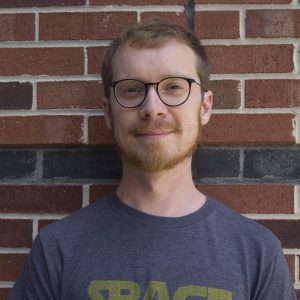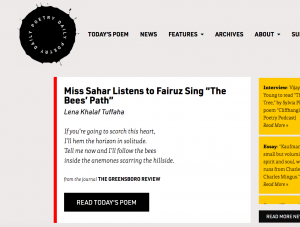By Matt Valades, Poetry Editor
Back in the pre-virus Fall of 2019, a seemingly distant past grown fond and yellow at the edges, when the coming year held only promise instead of plague, the poetry editors here at The Greensboro Review sat down less than six feet from editor-in-chief Terry Kennedy to discuss and select poems. I happened to bring up “A Slow Poem” by Daniel Liebert, one of a series of similar short prose poems in his submission. While many of these poems stayed with us, both Julia, my coeditor, and I admired this one most, the first in the set.
“A Slow Poem” struck us for its economy as well as its tension between the casual voice and intense, lucid images that, as Terry brought up in our meeting, raise the stakes over the course of the poem. This poem, unusually, does not have an “I” in it, no involved speaker for the reader to identify with. Instead, the separate images in the poem’s hypothetical poem become more specific as it proceeds from “a madman scrubbed and suited for visitor’s day,” then culminates in final lines that are simply unforgettable. The circular, repeating syntax and phrasing describes a poem in the act of its own making, which fits well with its quiet build. A lack of sentimentality but a powerful feeling comes from this poem, despite being only four short sentence fragments. We finished reading it together feeling curiously satisfied but not quite sure how, a good sign.
We chose it to close out the issue for its sense of closure with a lightness of touch. Hopefully, the poem’s care and power offers some much-needed (though temporary) satisfaction to readers of Issue 107. We think it will.

Matt Valades is a poet and recent MFA graduate from The University of North Carolina – Greensboro. His poems have been published in Subtropics and Carolina Quarterly, while a review of his has appeared in PN Review (UK).




